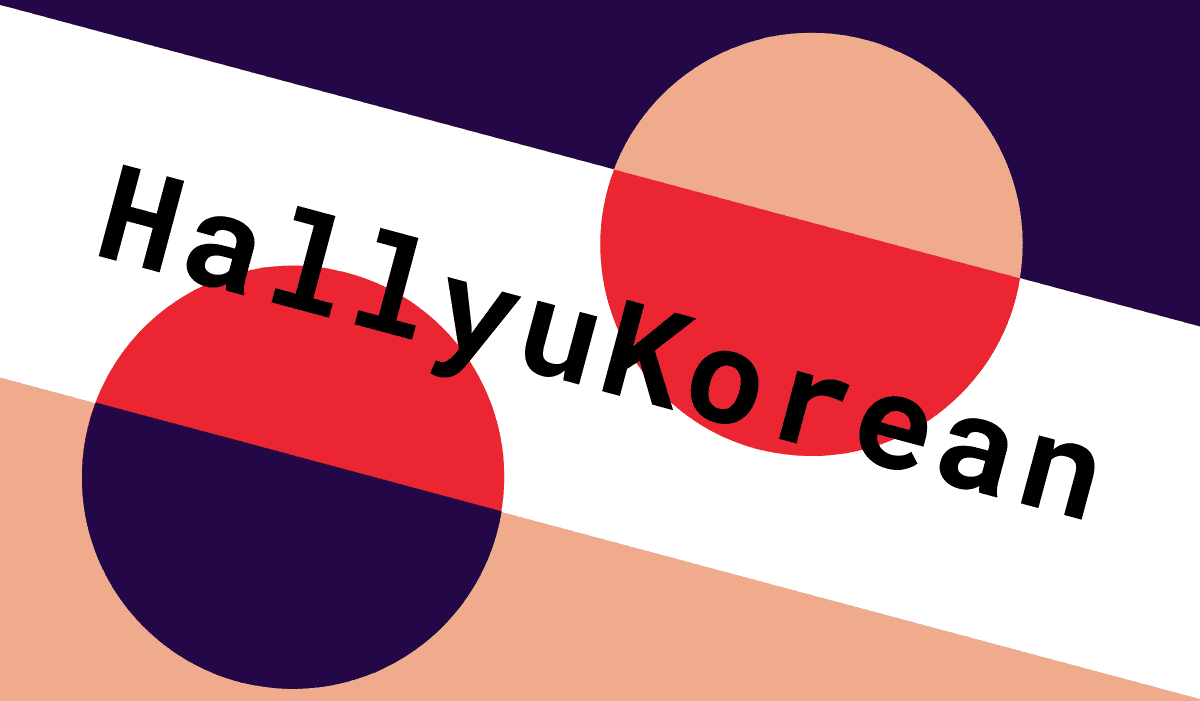Korean words for to do, to stop, to do for, to make it : 하다, 말다, 해주다, 해내다
Let’s learn Korean words for to do, to stop, to do for, to make it with BLACKPINK lyrics.
하다, 말다 are also the most common Korean verbs.
Click the play button below to listen to all the BLACKPINK lyrics used in this post.
하다 [ha-da] to do, to be
넌 뭘 해도 칼로 물 베기
neon mwol hae-do kal-lo mul be-gi
Whatever you do, it’s like cutting water with a knife
*넌(너(you)+는(topic particle), =넌) +
뭘(무엇(what) + 을(object particle), =뭘) +
해도(하다(do) + ~도(even if)) +
칼(knife) + 로(with) +
물(water) +
베기(베다(cut) + ~기))
(*Adding ~기 to a verb stem makes the verb a noun.)
말다 [mal-da] to stop
착각하지 마
chak-gak-ha-ji ma
Don’t be mistaken
*착각(mistake) +
하지 마(하다(do) + ~지 마(do not))
해주다 [hae-ju-da] to do for
말해줘
mal-hae-jwo
Tell me
*말(talk) +
해줘(하다(do) + 줘(주다(give) + 어(an imperative ending suffix))
(*~아/어/해 주다 indicates that an action is being done for someone.)
해내다 [hae-nae-da] to accomplish, to make it
또 이 어려운 걸 해내지
tto i eo-ryeo-un geol hae-nae-ji
I make this difficult thing again
*또(again) +
이(thing) +
어려운(어렵다(be difficult) + ㄴ(noun modifier)) +
걸(것(thing) + 을(object particle), =걸) +
해내지(make it)
Grammar Reference
*Noun+하다 : verb
Many Korean nouns that indicate or describe an action or behavior can be combined with 하다 to form verbs.
In some cases, nouns can be turned into verbs by simply adding the verb 하다 (to do).
ex)착각하지 마 : 착각(mistake) + 하지 마(하다(do) + ~지 마(do not))
말해줘 : 말(talk) + 해줘(하다(do) + 주다(give) + 어(an imperative ending suffix))
*Verb stem + ~지 마(요/세요) : don’t (negative commands)
ex)하지 마 : 하다(do) + ~지 마(do not)
Verb stem + ~지 마세요 : please don’t
~지 마(요/세요) (-ji ma(yo/seyo)) is the grammatical structure used to tell someone not to do something.
*Verb stem + ~기 : adding ~기 to a verb stem makes the verb a noun.
ex)베기 : 베다(cut) + ~기
*Noun + 로/으로 : with [towards, to, by, through] noun
ex)칼로 : 칼(knife) + 로(with)
으로 for nouns ending in a consonant, 로 for nouns ending in a vowel.
*Tense
*Present tense : Adjective/verb stem + ~아/어/해요
*Past tense : Adjective/verb stem + ~았/었/했어요
*Future tense : Adjective/verb stem + ~(으)ㄹ 거예요 / ~ㄹ 게요/ ~겠어요
The basic way to get the verb/adjective stem is to remove 다 from the verb/adjective.
If there is a vowel ㅏ or ㅗ on the final syllable of the adjective/verb stem, 아요(present tense), 았어요(past tense), 을 거예요(future tense) is used.
If there is a vowel other than ㅏ or ㅗ on the final syllable of the adjective/verb, 어요(present tense), 었어요(past tense), ㄹ 거예요(future tense) is used.
Also, if there is 하다 in the adjective/verb, 하다 changes to 해요(present tense), 했어요(past tense), 할 거예요(future tense).
Below you can see the conjugation of 하다, 말다, 해주다, 해내다, 어렵다 by tenses.
| Present tense | Past tense | Future tense | |
| 하다 | 해요 | 했어요 | 할 거예요 |
| 말다 | 마요 | 말아요 | 말 거예요 |
| 해주다 | 해줘요 | 해줬어요 | 해줄 거예요 |
| 해내다 | 해내요 | 해냈어요 | 해낼 거예요 |
| 어렵다 | 어려워요 | 어려웠어요 | 어려울 거예요 |
*Speech levels
The three most commonly used Korean speech levels are 합쇼체 (formal polite), 해요체 (informal polite) and 해체 (informal plain).
*The formal polite style : Adjective/verb stem + ~(스)ㅂ니다
~(스)ㅂ니다 is used more in formal or public situations including the military, news, reporting presentations, meetings and lectures. It’s mainly used to address large gatherings or people you don’t know personally.
*The informal polite style : Adjective/verb stem + ~아/어/해요
~아/어/해요 is most commonly used in everyday life. Compared to the formal polite style, the informal polite style is softer and less formal, so it is mainly used among family members, friends, shopkeepers and other close acquaintances.
*The informal plain style : Adjective/verb stem + ~아/어/해
As for the informal plain style ~아/어/해, it is mainly used among friends from superiors to people of lower rank and among family members.
Below you can see the conjugation of 하다, 말다, 해주다, 해내다, 어렵다 by speech levels.
| Formal polite | Informal polite | Informal plain | |
| 하다 | 합니다 | 해요 | 해 |
| 말다 | 맙니다 | 마요 | 마 |
| 해주다 | 해줍니다 | 해줘요 | 해줘 |
BLACKPINK music video to enjoy
Well done for making it this far.
Watch the 뚜두뚜두 (DDU-DU DDU-DU) music video above and see if you can hear “넌 뭘 해도 칼로 물 베기”, which you learned today.


